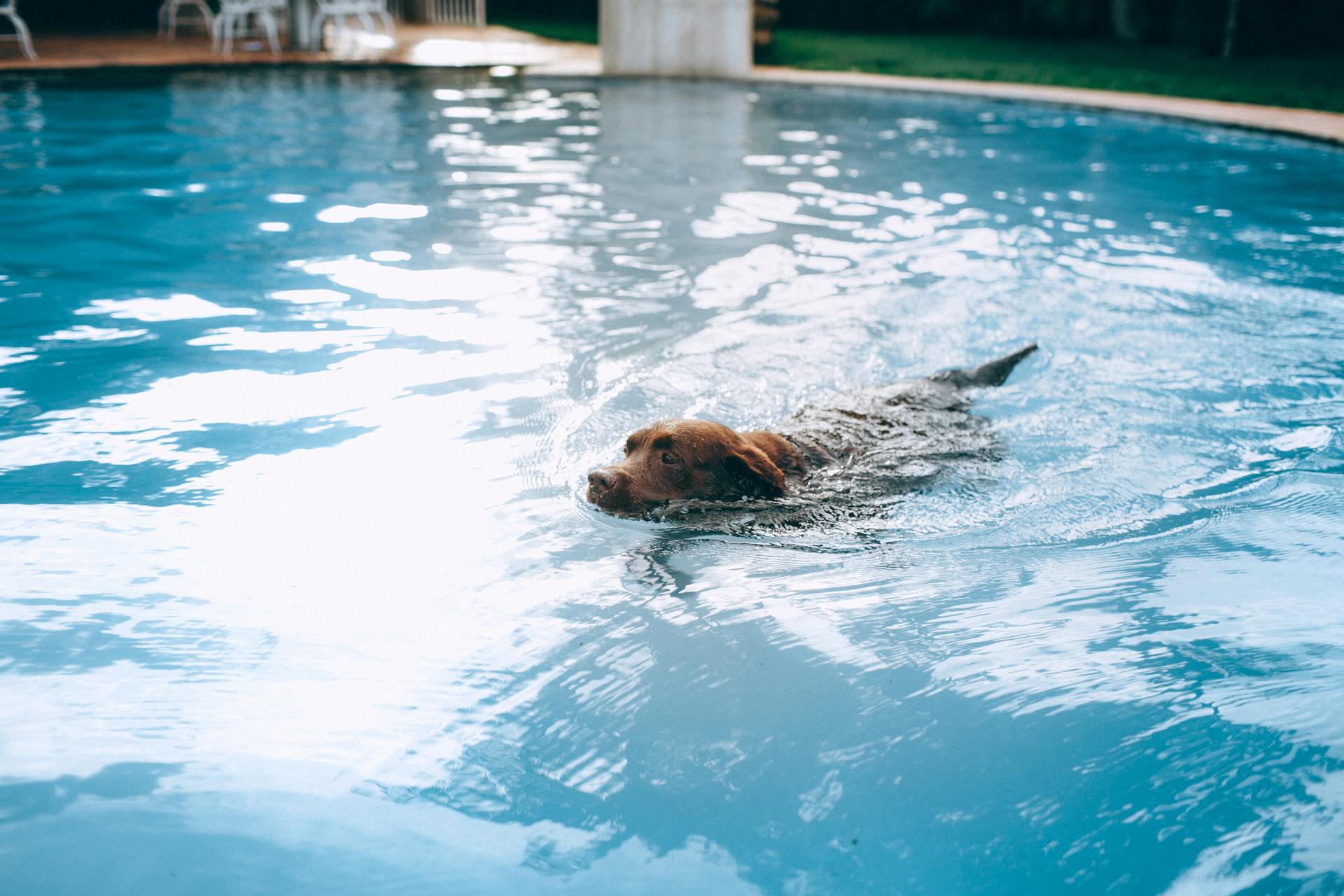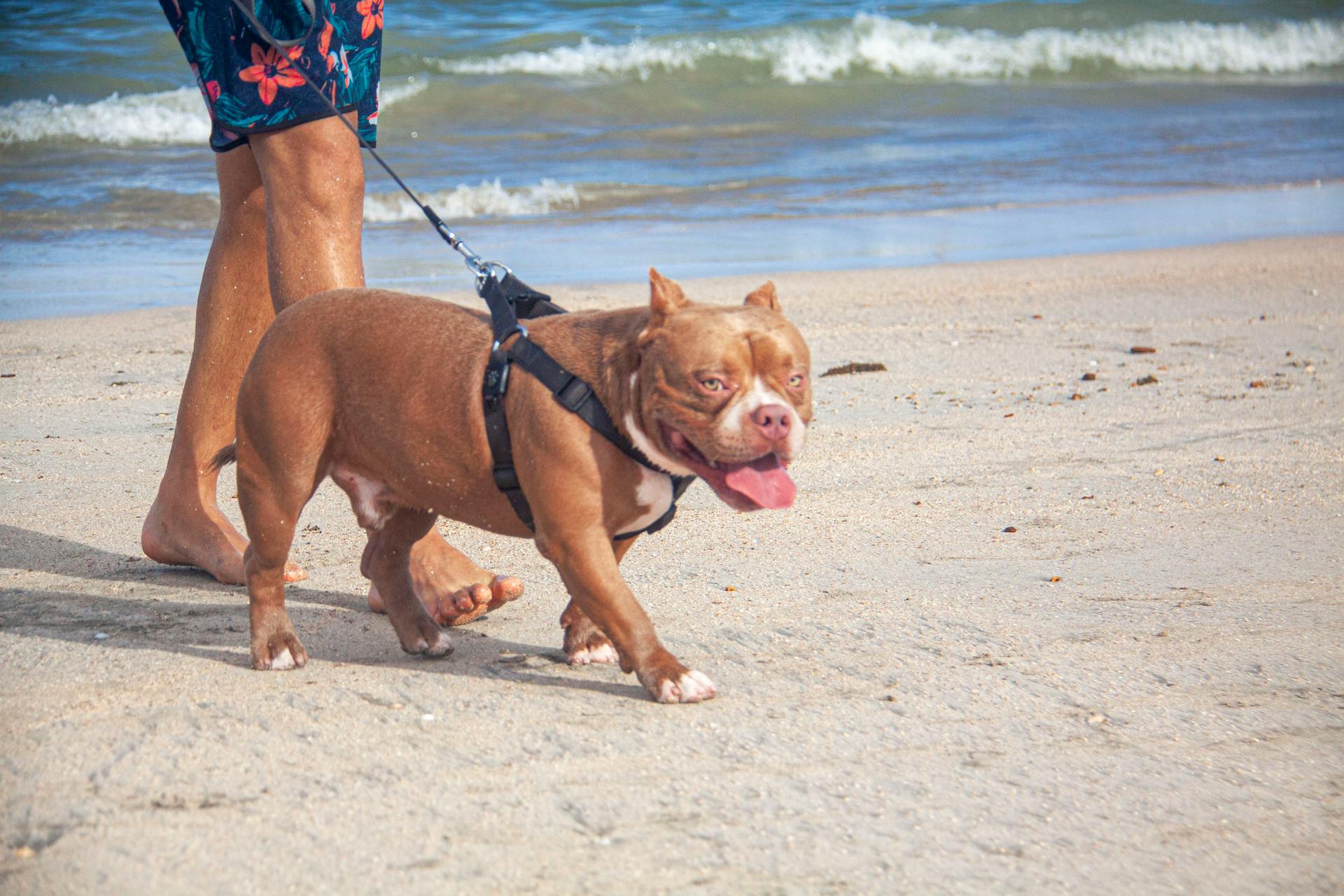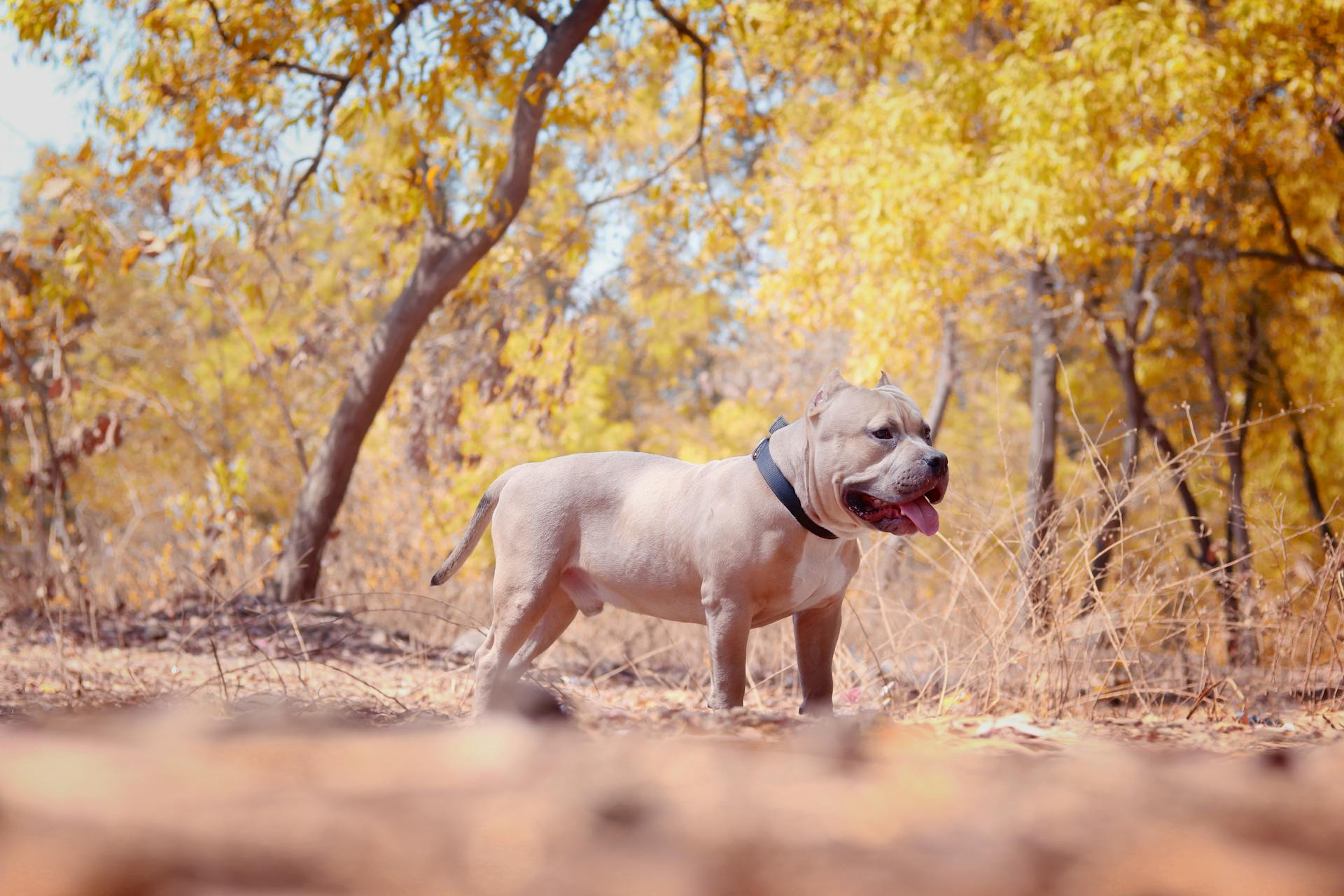
The American Water Spaniel is a medium-sized breed that typically weighs between 40-45 pounds and stands between 18-21 inches tall at the shoulder. They have a sturdy build and a short, dense coat that requires regular grooming.
Their intelligence and athleticism make them well-suited for active families who enjoy outdoor activities. With proper training, they can learn to retrieve and swim with ease.
Their short coat sheds minimally, but they do require regular brushing to prevent matting and tangling. This breed is generally low-maintenance when it comes to grooming needs.
Origin and History
The American Water Spaniel has a fascinating history that spans over a century. It originated in the Great Lakes region of the United States, specifically in the Fox and Wolf River valleys in Wisconsin.
The breed was developed in the mid-1800s, with reliable breeding records dating back to 1865. However, it wasn't until 1906 that Dr. Fred Pfeifer began the scientific breeding of American Water Spaniels, earning him the title of "Father of the American Water Spaniel".
The breed's ancestors include the Irish Water Spaniel, Curly-Coated Retriever, Field Spaniel, and the now-extinct Old English Water Spaniel. These dogs were bred to be versatile hunting companions, skilled at retrieving game on land and in water.
In the early 1900s, the breed's numbers dropped as hunting transitioned from a means of survival to a sporting activity. However, Dr. Pfeifer's efforts helped keep the breed alive, and it was officially recognized by the American Kennel Club in 1940.
The American Water Spaniel was initially bred to be a flexible hunting companion, with a thick, dense coat that protected them from cold water and briars. They were also small enough to be taken out in small boats or canoes, making them perfect for hunting in the Great Lakes region.
The breed's popularity declined as other breeds of hunting dogs became more popular, but Dr. Pfeifer's efforts helped save the American Water Spaniel from extinction. Today, the breed is still rare, but its unique characteristics and hunting abilities make it a beloved companion for many dog owners.
Care and Grooming
The American Water Spaniel's coat is a unique feature of this breed. It's a dense double coat that requires regular grooming to keep it in good condition.
Brushing is essential to prevent matting and tangling, so aim to brush your American Water Spaniel at least twice a week. A slicker brush is ideal for this task, as it can effectively remove dead fur and prevent shedding.
You may need to brush more frequently during shedding season, which typically occurs in the spring. Regular brushing will also help prevent the buildup of mats and tangles.
To keep your American Water Spaniel's ears clean and healthy, clean them weekly with a moistened cotton ball and ear cleanser recommended by your veterinarian. Be sure to avoid pushing cotton swabs inside the ear canals, as this can cause damage.
Regular nail trimming is also crucial to prevent painful splitting and tearing. Trim your American Water Spaniel's nails every month or so, or as needed.
For more insights, see: Why Are Labradors so Popular
Here's a quick rundown of the essential grooming tasks for your American Water Spaniel:
- Brush at least twice a week with a slicker brush
- Brush more frequently during shedding season
- Clean ears weekly with a moistened cotton ball and ear cleanser
- Trim nails every month or so
- Bathe roughly once a month, or as needed
Appearance
The American Water Spaniel's appearance is quite distinctive, with a compact body and a square-like muzzle. Their long, wide ears are covered in tight curls, giving them a stylish look.
Their webbed feet are a key feature, helping them propel through the water with ease. This is especially useful for a breed bred to hunt and retrieve.
Their water-resistant double coat is thick and dense, providing protection against water, weather, and other outside elements. This coat can be wavy, curled, or have a marcel effect, varying between individual dogs.
The American Water Spaniel's tail is long and slightly curved, carried a little below the level of the back. It's well-feathered and covered in fur, adding to their overall appearance.
They come in three colours: brown, liver, and chocolate. Some dogs may also have white on their toes and chest, which is allowed under the breed standard.
Care
The American Water Spaniel is a unique breed that requires regular grooming to keep its coat in good condition. Brushing is essential, and you should aim to brush your American Water Spaniel at least twice a week, or more frequently during shedding season.
A slicker brush is the best tool for the job, as it can remove dead fur and prevent matting. In fact, brushing your American Water Spaniel daily can help loosen the undercoat and prevent matting.
Bathing your American Water Spaniel is also important, but be careful not to overdo it. Aim to bathe your dog roughly once a month, or as needed. Be sure to dry its ears well after baths and swimming, and check the ears at least weekly to see whether they need cleaning.
Regular nail trimming is also essential to keep your American Water Spaniel's paws healthy. You should check and clean their nails once or twice a month, or as needed. Very long nails can be painful for your dog and cause health issues.
See what others are reading: 6 Month English Mastiff
Here's a quick rundown of the grooming tasks you should aim to do regularly:
By following these grooming tips, you can help keep your American Water Spaniel happy and healthy.
Health and Nutrition
American water spaniels are generally a healthy breed, but like all breeds, they can be prone to certain health issues. They typically live for 10-14 years with proper care.
Fresh water should always be available for your American water spaniel, and they should eat a high-quality canine diet with balanced nutrition. Discuss both the type of food and the amount with your veterinarian to ensure you're meeting your dog's individual needs.
Some common health issues found in American water spaniels include hip dysplasia, mitral valve disease, hypothyroidism, degenerative myelopathy, progressive retinal atrophy, retinal dysplasia, and epilepsy. These conditions can be managed with proper care and medication, but some cannot be cured.
American water spaniels can develop eye issues such as cataracts and progressive retinal atrophy, which can be seen within a year of age. Adopting an adult American water spaniel can be a great option for avoiding these conditions.
Here are some common health issues found in American water spaniels:
- Hip Dysplasia
- Mitral Valve Disease
- Hypothyroidism
- Degenerative Myelopathy
- Progressive Retinal Atrophy (PRA)
- Retinal Dysplasia
- Epilepsy
Regular veterinarian visits and proper care can help your American water spaniel live a long, healthy, and happy life.
Training and Behavior
Training an American Water Spaniel requires patience, consistency, and positive reinforcement. They respond well to brief, motivational training sessions and praise.
American Water Spaniels are intelligent and highly trainable, but they can be stubborn if trained with harsh techniques. Consistent leadership is essential, and they best respond to being trained by their human companion rather than an unfamiliar trainer.
Positive reinforcement training methods, such as treats and praise, work well for this breed. They take well to obedience commands and socialization from an early age, which helps quell their sometimes aloof nature with strangers.
Socialization is crucial for American Water Spaniels, as they can be wary of strangers. Exposing them to different people, other dogs, and various locations from a young age helps them develop a well-rounded personality.
To keep their strong bodies and minds stimulated, regular interactive games and runs in the country are essential. A swim every now and then is also appreciated.
Here's a summary of the breed's characteristics:
American Water Spaniels are generally happy and attentive with their family, but they can be aloof with strangers. They have a medium energy level and require regular exercise and mental stimulation to prevent boredom and destructive habits.
They make excellent family pets, but they do tend to be closer to the family member who gives them the most attention, affection, and time. Consistent training and socialization from an early age is essential to ensure they grow up to be well-rounded and well-mannered companions.
Frequently Asked Questions
How rare are American water spaniels?
The American Water Spaniel is a rare breed with only approximately 3000 individuals in existence. Despite its rarity, this unique breed has a rich history as one of the five hunting breeds developed in the United States.
How much does an American Water Spaniel cost?
American Water Spaniels in the western US typically cost between $1,500 to $2,000 due to high demand and limited breeders
Sources
- https://www.thesprucepets.com/american-water-spaniel-full-profile-history-and-care-4766808
- https://www.thepedigreepaws.com/dog-breed/american-water-spaniel
- https://www.dailypaws.com/dogs-puppies/dog-breeds/american-water-spaniel
- https://www.hundeo.com/en/dog-breeds/american-water-spaniel/
- https://www.omlet.us/breeds/dogs/american_water_spaniel/
Featured Images: pexels.com


